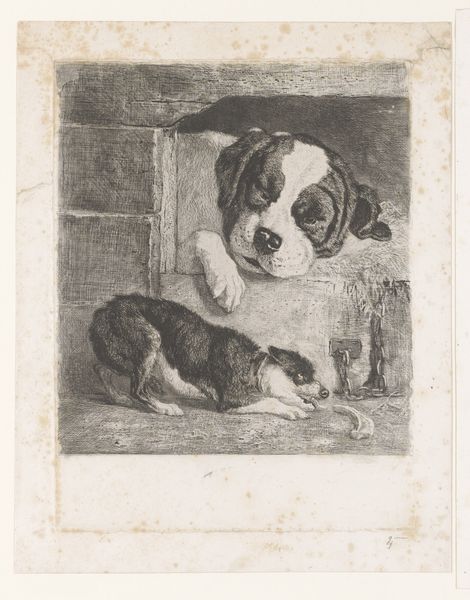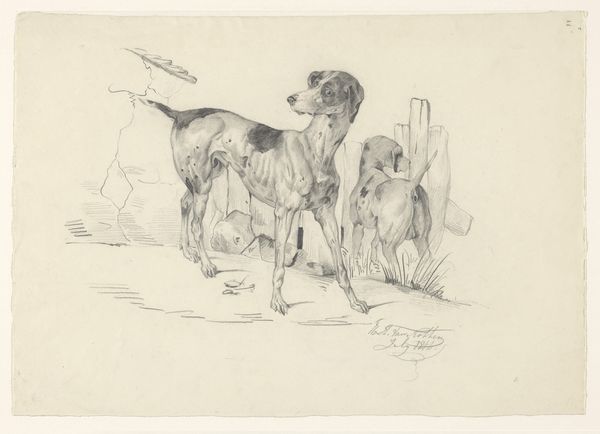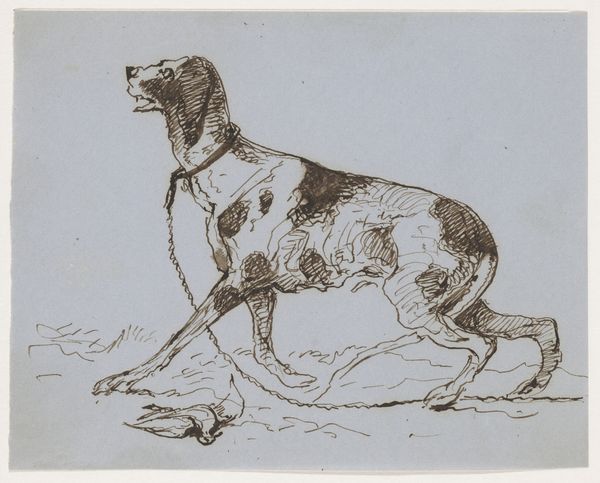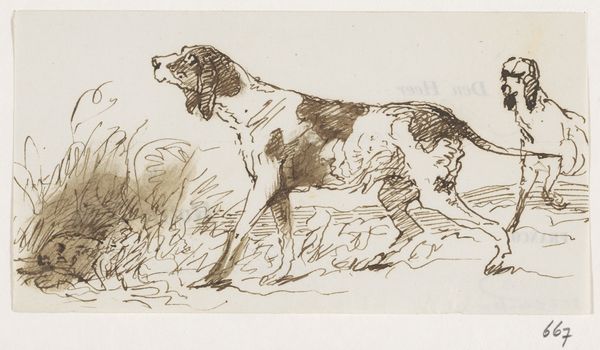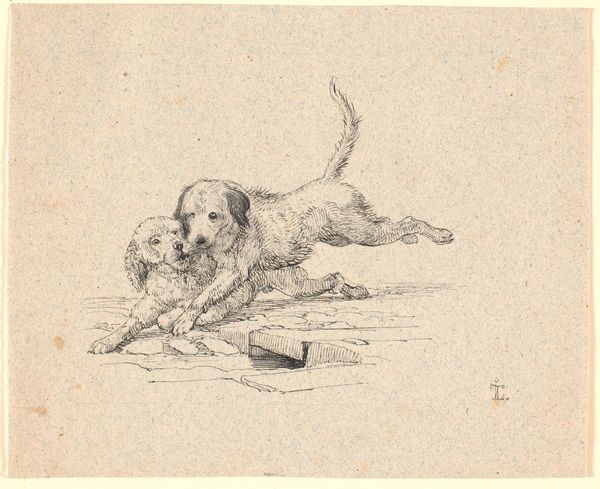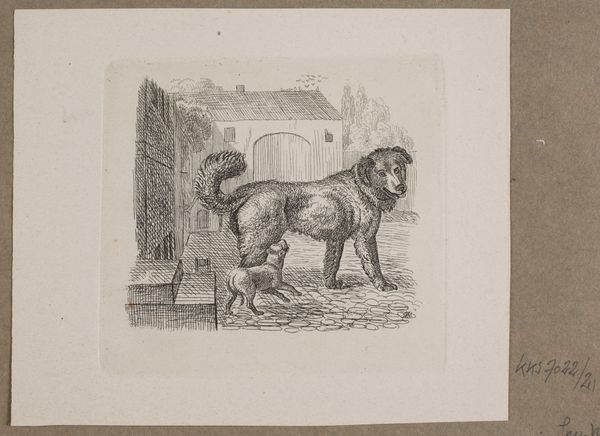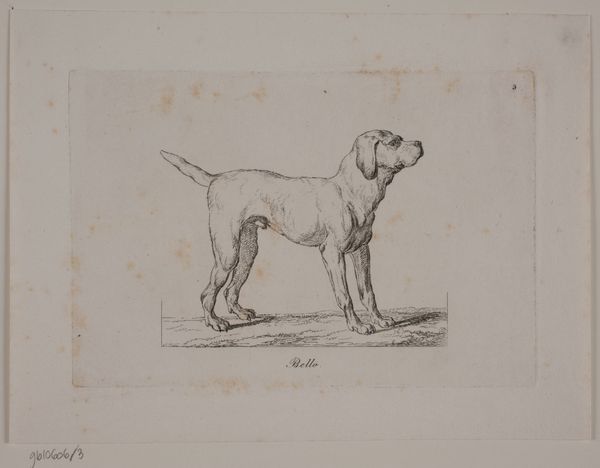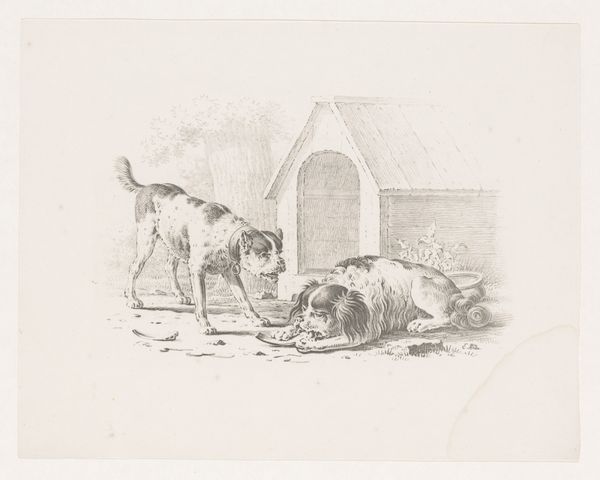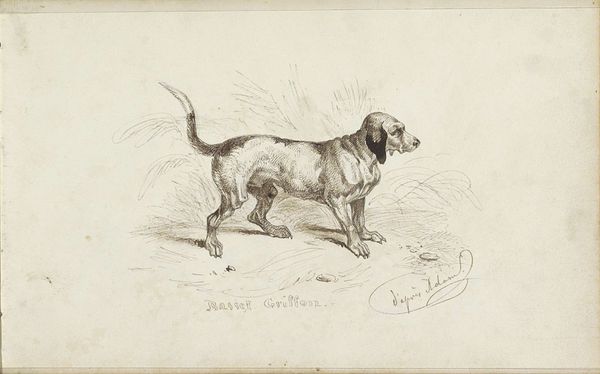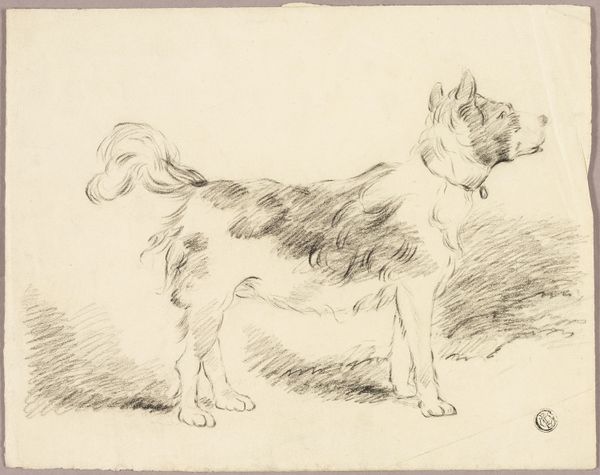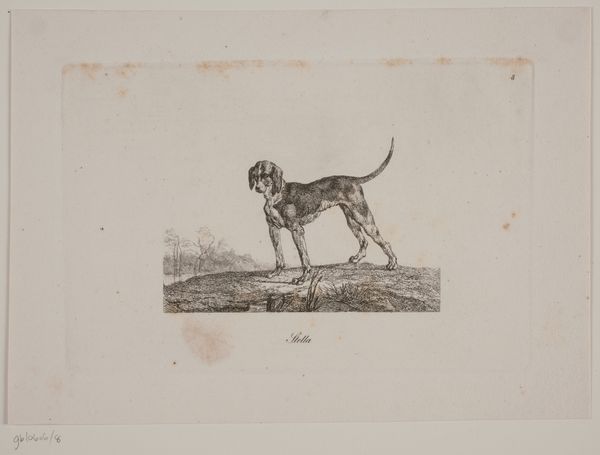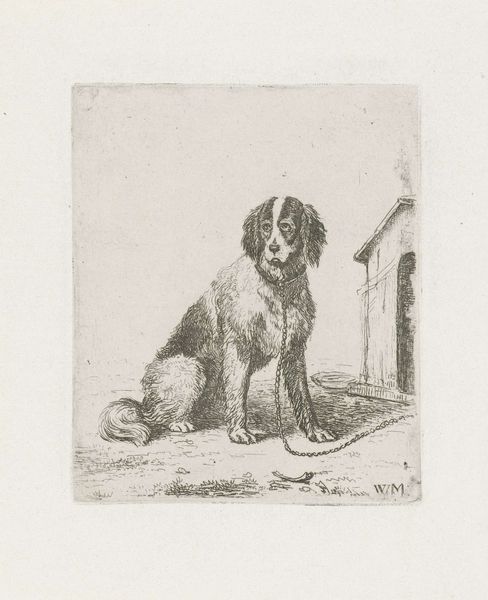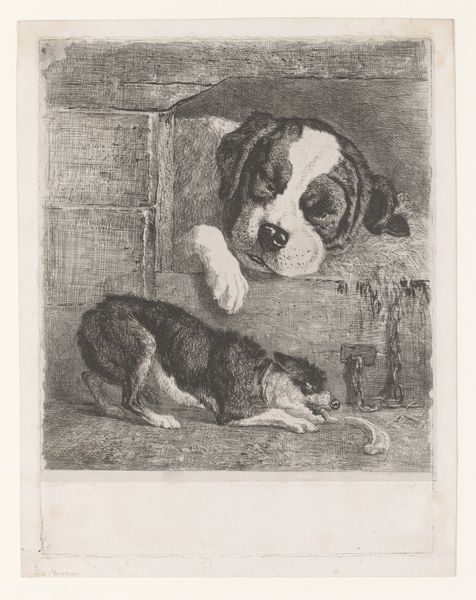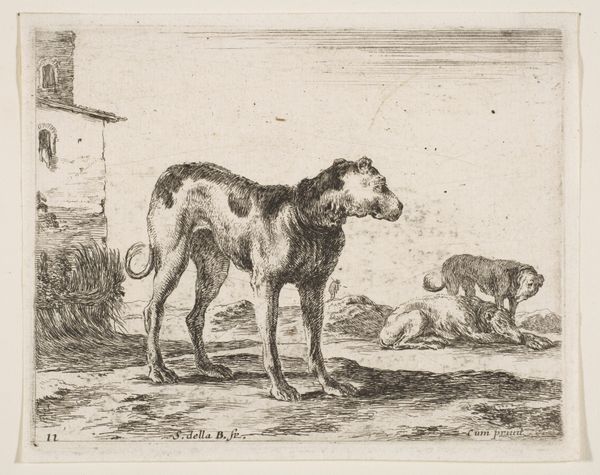
drawing, pencil
#
portrait
#
drawing
#
dog
#
landscape
#
romanticism
#
pencil
Dimensions: height 95 mm, width 142 mm
Copyright: Rijks Museum: Open Domain
Curator: It’s a surprisingly poignant drawing, isn’t it? Something about the quietness of it. Editor: I agree. This is “Aangelijnde hond, staande voor zijn hok” – a pencil drawing created between 1775 and 1833, and the artist is Jean Bernard. The artwork can be found right here in the Rijksmuseum. Curator: The roughness of the pencil strokes really emphasizes the raw materiality. You can almost feel the texture of the paper itself, like a form of labor showing through! I am fascinated by how something so basic as graphite can render such emotion, creating both the form of the animal and its shelter. And look there, discarded bones. Editor: It feels like a representation of the urban poor in that period. The dog’s restricted, leashed position, in front of a relatively basic doghouse structure... it all speaks to a wider societal issue of constraint, in a time of changing social structures and political turbulence. The looming city in the background juxtaposed against the dog's confined reality amplifies that sense. Curator: That context really does make me consider the social hierarchy inherent to pet ownership, especially during that time. How the dog is both part of, yet separate from, human society, relying entirely on them for shelter and basic necessities... Editor: It also hints at the role of the Rijksmuseum itself – institutions choosing which animals, and thus associated symbols, deserve preserving and studying, echoing patronage systems of old. Curator: Incredibly thought-provoking. I will never be able to unsee the sociopolitical dynamics at work whenever I encounter dogs! Editor: I think you've broadened the implications far beyond the aesthetic appreciation for pencil marks; a great insight into art's social impact.
Comments
No comments
Be the first to comment and join the conversation on the ultimate creative platform.
